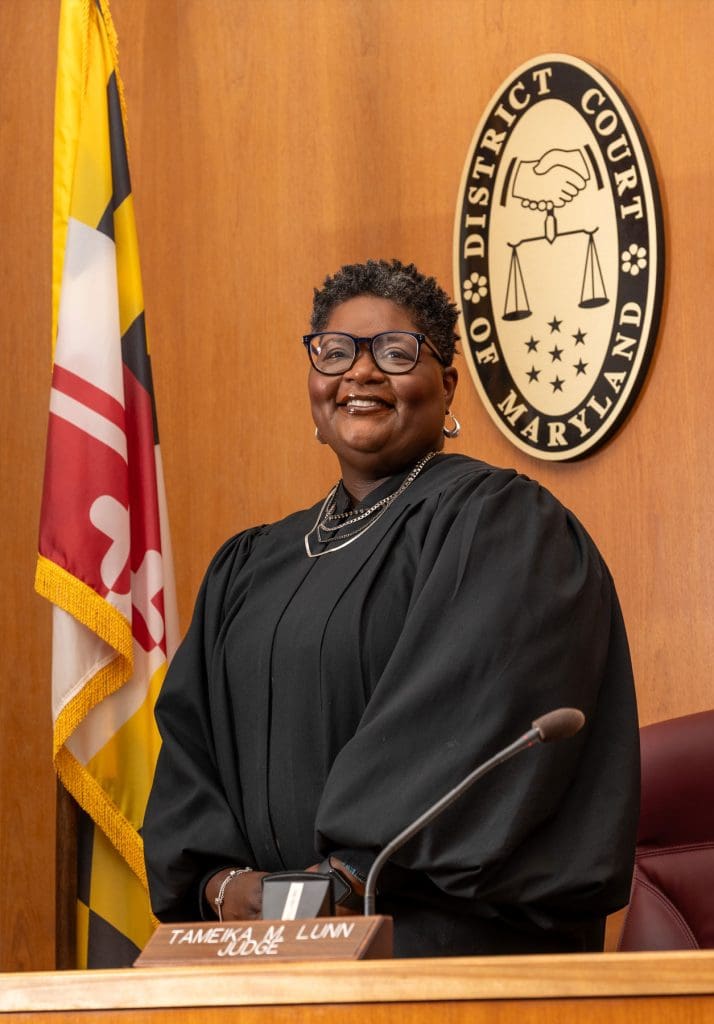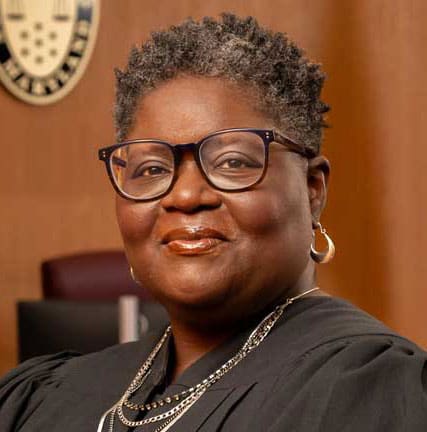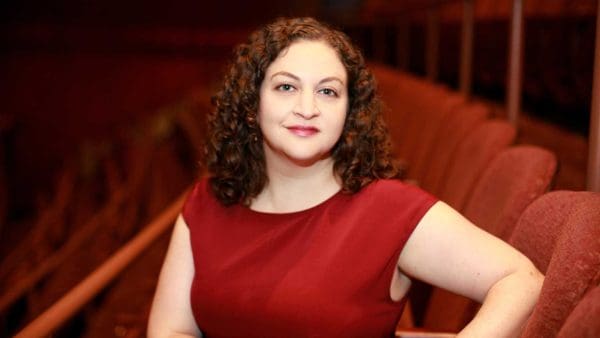When Tameika Lunn ’99 entered a courtroom to preside over a case for the first time, she admits feeling embarrassed.
“I was telling people to sit down. I know you’re supposed to stand up, that’s the decorum of the court, but because of my personality I’m like, ‘Oh no, no, you’re good, you’re good.’”
Lunn, now in her third year as associate judge in the District Court of Maryland for Baltimore City, has had to get comfortable with the court’s response to “All rise.” On some days she presides over as many as 30 cases in criminal court, traffic court, and Adult Recovery Court (ARC)—which she describes as “justice meets treatment.”
Sense of humanity
In ARC, defendants with non-violent convictions are referred to and assessed by Lunn and her team. Participants are offered substance abuse treatment in lieu of incarceration. Lunn says the court has also connected clients to mental health services and participants have gained employment and received degrees. “We meet people where they are. It’s a really supportive environment,” she says, which is surprising to some.

“I’ve had interns sit in and they’re shocked. There’s a lot of affirmations and sometimes sadness,” Lunn explains. “It’s surprising to people to walk into a court where if I’m giving out [ARC graduation] certificates, I come down off the bench and hand it to the clients and hug them.”
Lunn says she wants people to feel a sense of humanity in her courtroom, but she balances being empathic with being authoritative.
“Everybody is not going to get what they want but my goal is [to] let them know I am fair and impartial, and most of all, to make sure that everyone who comes before me feels that they’ve been heard.”
That approach is informed by what Lunn and those closest to her have experienced.
Personal perspectives
“My mom was 14 [and] my dad was 16 when I was born, so there was lots of struggle,” she says. “I state to our clients, ‘I don’t want you to think I’m giving lip service to your recovery.’ My father has more than 30 years of sobriety. My brother lost his life to his battle.”
David Lunn Jr. died at the age of 37 after a fentanyl overdose. He chronicled his recovery challenges in journals. Lunn reads passages to those who appear before her in court. “I know he is pleased that I can share some of what he was going through with people who are trying their hardest to stay sober. It’s humbling to share but necessary.”
Raised in Baltimore’s Greenmount West neighborhood and a graduate of the Bryn Mawr School, Lunn has a broad perspective on Baltimore. She says it’s one reason why she applied to the bench.
“I know what it’s like to be a child who doesn’t have a lot, but I also understand middle-class values and the people working to uplift their communities.”

Everybody is not going to get what they want but my goal is [to] let them know I am fair and impartial, and most of all, to make sure that everyone who comes before me feels that they’ve been heard.”
Tameika Lunn
Learned discipline
She double majored in history at the Krieger School and voice performance at the Peabody Institute, where she also received an opera certificate. “I definitely utilize my stage presence [in the courtroom]. At Hopkins I learned discipline. [It’s] with me every day. I did sacrifice lots of typical college activities so I could do a dual degree. My friends laugh about it to this day. They’re like, ‘Remember that Alpha party?’” To which she reminds them, “‘Girl, I wasn’t there.’”
Those friends (they call themselves “The Brown Bluejays”) stayed close with Lunn through law school at George Washington University. Prior to joining the bench, Lunn worked as a civil insurance defense attorney and administrative law judge at the Maryland Office of Administrative Hearings.
One thing seems to have stayed consistent throughout her career: a commitment to bringing her full self to her roles.




